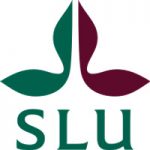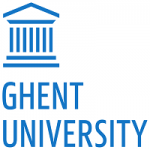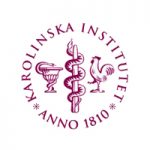项目介绍
The BBS program is designed to support students throughout their Ph.D. training. From first-year orientation activities to your thesis defense, we are here to help you succeed and reach your full potential as a future scientific leader. A brief overview of the Program’s support structures and training activities is presented below.
YOUR FIRST YEAR
Program Advising: During your first year, you will be supported by a program advisor. These faculty mentors will serve as your guide to the program and the research environment at the medical school and beyond. They will advise you in choosing appropriate courses and rotation laboratories and help you solve problems that might arise as you adjust to life in graduate school.
Courses and Curriculum: The program requires that you complete eight full-semester courses during your Ph.D. training, four of which are required and serve to reinforce and extend knowledge of fundamentals in the biosciences. In your first year, you will participate in the required core courses: Principles of Genetics, Principles of Molecular Biology, Principles of Cell Biology, and the skill-building course BBS 230, which teaches how to critically analyze the primary research literature – a skill essential to all career trajectories building outward from the biosciences. (Read more about our curriculum).
Laboratory Rotations: Rotations provide an excellent opportunity for you to try out a variety of labs to find the one that best fits your interests for pursuing thesis research. Students typically perform rotations in at least three laboratories throughout the course of the first year. The length and timing of the rotations are flexible, but we recommend that you spend at least 6 weeks in each lab. To help you identify potential rotation labs, current students organize a weekly “rotation club” where they present their experiences rotating in different labs and provide advice to new students in choosing a lab. (Learn more about our outstanding faculty)
Thesis Laboratory: At the conclusion of your first year, you will choose your thesis advisor and laboratory. The faculty member that directs the lab will be your primary mentor for the remainder of your graduate training. Additionally, the department and/or special interest program to which your advisor belongs will become your intellectual and community “home”. These communities organize numerous activities throughout the year, including: research seminars, trainee talks, social hours, annual retreats, career workshops, and more.
YEAR 2
Courses and Curriculum: Students typically complete their course requirements by the end of year two, choosing from an array of courses of interest. Optional is the skill-building course, BBS 330, which teaches proposal writing strategies and is an elective course offered in the Fall semester. BBS 330 also helps students prepare for their qualifying exam. (Read more about our curriculum)
Preliminary Qualifying Exam: During year two, students will prepare a written research proposal based on their thesis research. This proposal is then defended orally to an examination committee of three Program faculty members. The goals of the exam are twofold: (i) to strengthen written and oral communication skills and (ii) to confirm possession of the basic fundamentals and field-specific knowledge necessary to successfully complete the proposed thesis project. Areas needing further study may be identified, along with strategies to provide additional support. The optional BBS 330 course can help you build your PQE proposal.
Dissertation Advisory Committee: Upon passing the qualifying exam, students will choose three faculty members to serve as their dissertation advisory committee (DAC). Your DAC will typically meet once or twice annually to provide advice on your thesis project. The committee will be your advocate and serve as an additional set of mentors. Their role is to support you in accomplishing your training goals and in successfully completing your thesis research.
YEAR 3 AND BEYOND
Most students completetheir course requirements by the end of year two. In year three and beyond, effort is largely dedicated to making exciting discoveries in the laboratory and completing your thesis research. Your thesis advisor and DAC will be your primary mentors during this process, but the program heads and staff are always available should you wish additional support or advice. The average time to degree for the program is ~5.7 years.
联系方式
电话: (617) 495-1000相关项目推荐
KD博士实时收录全球顶尖院校的博士项目,总有一个项目等着你!






